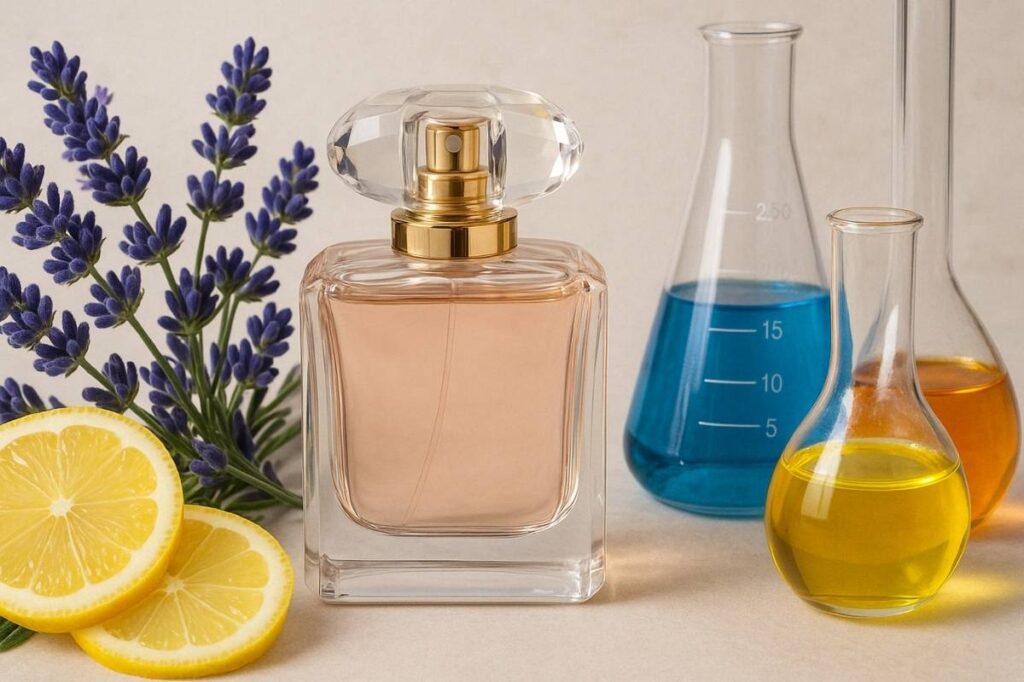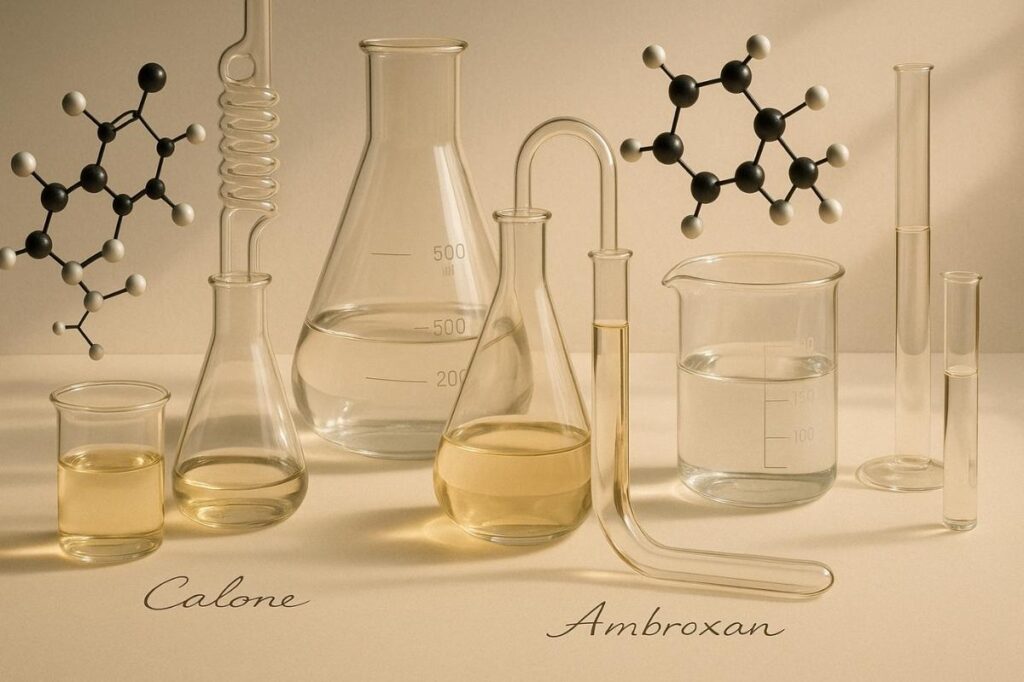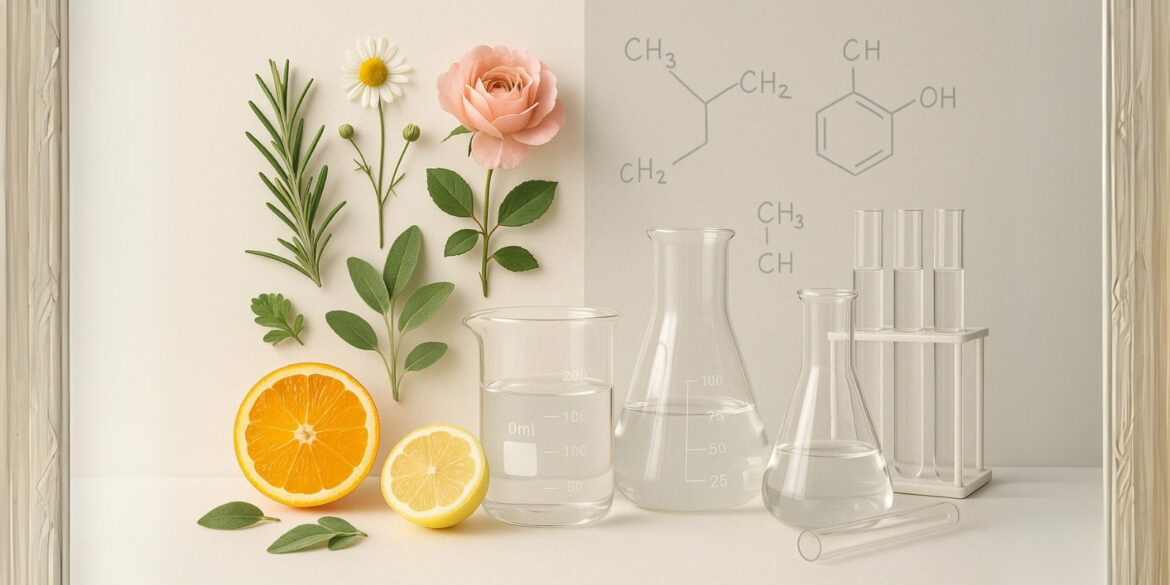We’ve all seen labels such as “Natural Fragrance” and “Botanical Extracts,” accompanied by images of fields of lavender and sun-drenched citrus groves. Sounds idyllic, right? But it isn’t as simple as “natural = good” and “synthetic = bad.” In fact, that “natural” label can be downright misleading, and in some cases, even harmful.
So what’s the truth behind natural and synthetic ingredients? Let’s find out.
The Natural Deception

The word natural gets thrown around a lot, and in the fragrance world, it’s often used more for marketing than for strict accuracy. At the end of the day, there is no clear definition of what natural ingredients even mean. Does it mean the ingredient came directly from a plant, untouched? Rarely. Often, “natural” fragrances are extracted, distilled, or otherwise processed. Although it may still technically originate from a plant, the processing can significantly alter its chemical composition.
The Dark Side of Natural

Natural doesn’t automatically equal safe. In fact, some of the most potent allergens are found in natural ingredients. Essential oils ( not to be confused with perfume oils), for example, used extensively in natural perfumes, are concentrated substances. Someone might react terribly to lavender or citrus oil, while a carefully crafted synthetic version of those notes might be perfectly safe.
Secondly, certain natural ingredients, like bergamot (before it’s processed to remove a compound called bergaptene), can cause severe skin reactions when exposed to sunlight. Lastly, many natural ingredients aren’t really designed to be used on their own; they don’t smell “good” enough without any help, or they are too weak and are only useful as a support to the fragrance to enhance it.
Synthetic notes

Now, let’s talk about synthetics!
Synthetics have revolutionised perfumery, allowing for sustainability. Imagine the environmental impact of harvesting enough sandalwood to meet the global demand for its scent. Synthetic sandalwood alternatives are essential for protecting endangered species.
Synthetics also unlock entirely new scent profiles that don’t exist in nature. Think of Calone, an unusual chemical compound which has an intense fresh, salty scent of the ocean, or Ambroxan, with its warm, ambergris-like aroma. These notes have transformed modern perfumery.
But most importantly, there is the safety factor. As mentioned before, synthetics can be designed to avoid allergenic compounds, saving many a needless trip to the ER.
Synthetics are also cost-effective, which is the primary reason the industry initially adopted them. The cost of natural rose essential oil can be astronomical, which can drive up the price of the fragrance. Synthetic rose notes are more affordable and can still capture the beauty of the rose.
The bottom line? Don’t be fooled by the “natural” label. The best perfumes are often a masterful blend of both natural and synthetic ingredients. Fragrance is an art and a science. The most important thing is to find scents that you love and that work well with your body chemistry, regardless of their origin. So, don’t be quick to buy a fragrance, or any product for that matter, simply because it is labelled as natural.
Shop from V Perfumes for your favorite fragrances at the best prices in the UAE.




